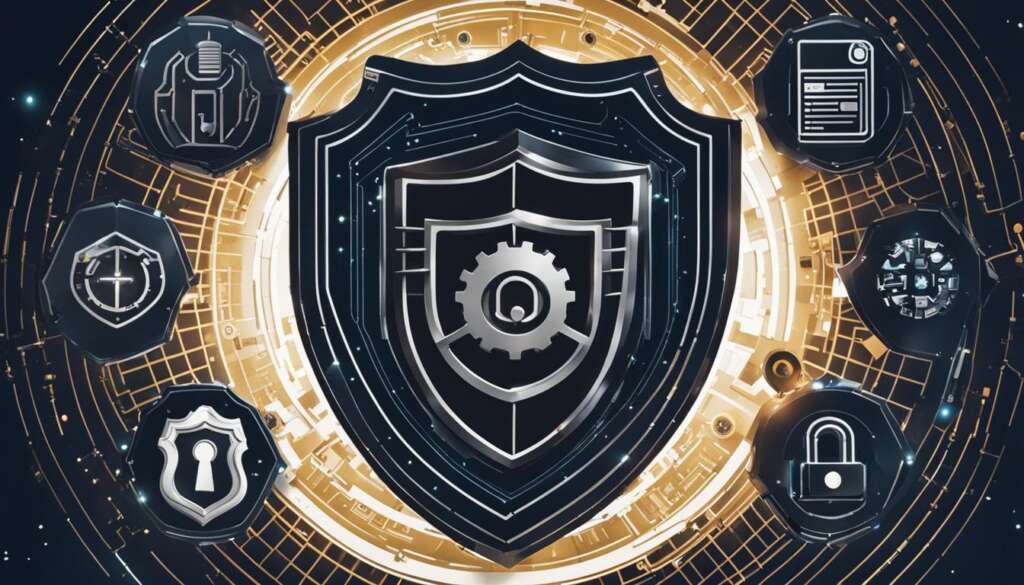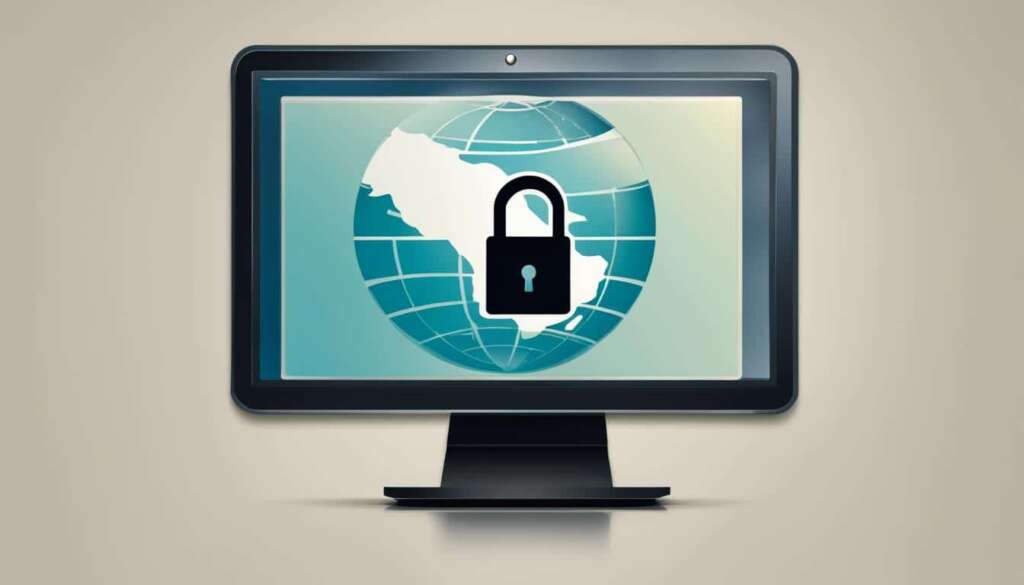Table of Contents
The gig economy refers to a labour market that consists of short-term contracts and freelance work. It has been growing exponentially in recent years, with an estimated global value of $204 billion in 2019. The gig economy includes various contingent work arrangements such as freelancers, independent contractors, and consultants. During the COVID-19 pandemic, the gig economy expanded to include a wide range of skilled workers, including those in small and medium-sized practices (SMPs). However, with the rise of remote work, cybersecurity has become a major concern for organisations and gig workers alike.
The Rise of the Gig Economy: On-Demand Workforce
The gig economy has revolutionized the way people work, providing flexibility and independence that was previously unimaginable. With the rise of digital platforms, gig workers can easily connect with employers and find suitable roles based on their skills and experience. This has led to the emergence of an on-demand workforce that caters to a wide range of industries and services, including IT, finance, and design.
However, as the gig economy continues to grow, so do the challenges in terms of digital security and online safety. With the increasing reliance on remote work, organizations and gig workers need to ensure that appropriate cybersecurity measures are in place to protect sensitive information and mitigate potential risks.
Ensuring digital security in flexible workplaces is of utmost importance. Organizations must prioritize the implementation of robust cybersecurity policies, such as using secure network connections, regularly updating software and devices, and providing cybersecurity training for gig workers. By adopting these best practices, both organizations and gig workers can navigate the gig economy with confidence, knowing that their online safety is well-protected.
| Best Practices | Description |
|---|---|
| Use secure network connections | Utilize virtual private networks (VPNs) to encrypt data and ensure secure connections when accessing sensitive information remotely. |
| Regularly update software and devices | Keep software and devices up to date with the latest security patches and updates to protect against known vulnerabilities. |
| Implement strong passwords and authentication methods | Create complex passwords and enable multi-factor authentication to enhance account security and prevent unauthorized access. |
| Provide cybersecurity training | Educate gig workers on cybersecurity best practices, such as identifying phishing emails, using secure file sharing platforms, and reporting security incidents. |
By following these digital security best practices, gig workers can safeguard their online presence and contribute to a safe and secure gig economy.
Understanding the Gig Economy: The Rise of On-Demand Workforce
The gig economy has revolutionized the way we work, offering flexibility and autonomy to individuals seeking diverse job opportunities. With the increasing prevalence of remote work, it is crucial for organizations to establish robust cybersecurity measures to protect their remote employees and valuable data. By implementing various cybersecurity strategies, businesses can ensure the security of their gig workers and maintain a secure remote workforce.
One important aspect of securing the remote workforce is the development and implementation of comprehensive cybersecurity policies. These policies should outline guidelines for remote work, including the use of secure networks, strong passwords, and authentication methods. Organizations should also consider providing cybersecurity training to gig workers, educating them on best practices for online safety and threat detection.
Enhancing IT procedures is another key aspect of securing the remote workforce in the gig economy. Companies should regularly update software and devices used by gig workers to ensure they are equipped with the latest security patches and protections. Additionally, establishing protocols for incident response and providing remote technical support can help gig workers address cybersecurity issues effectively.
Overall, securing the remote workforce in the gig economy requires a multi-faceted approach that combines comprehensive cybersecurity policies, education and training, and proactive IT procedures. By prioritizing cybersecurity measures, organizations can protect their remote employees and valuable data, enabling them to reap the benefits of the gig economy while mitigating potential risks.

| Key Cybersecurity Measures for Remote Employees |
|---|
| Establish comprehensive cybersecurity policies |
| Provide cybersecurity training and education |
| Enhance IT procedures and protocols |
How Companies Can Adapt to the Gig Economy
The gig economy has revolutionized the way we work, providing flexibility and opportunities for both businesses and independent workers. However, with this shift towards remote work and flexible arrangements, companies need to adapt their practices to ensure the security of virtual workplaces and the data security of gig workers. Here are some essential strategies and considerations for companies looking to protect their virtual workplaces:
1. Creating Standard Contracts and Guidelines
When hiring gig workers, it is important to establish clear contracts and guidelines that outline cybersecurity expectations. This includes specifying data protection protocols, password requirements, and remote access policies. By setting these standards upfront, companies can ensure that gig workers are aware of their responsibilities and take the necessary precautions to safeguard company data.
2. Considering Alternative Compensation and Benefits Packages
Gig workers value flexibility, but they also expect fair compensation and benefits. Companies can attract and retain top gig talent by offering competitive compensation packages that take into account the unique nature of gig work. This could include performance-based bonuses, access to professional development resources, and other incentives that promote loyalty and engagement.
3. Improving Employer Branding
In the gig economy, reputation is everything. Companies should focus on building a strong employer brand that highlights their commitment to cybersecurity and data protection. This can be achieved by showcasing testimonials from satisfied gig workers, emphasizing the company’s dedication to maintaining a secure virtual workplace, and highlighting any industry certifications or partnerships that demonstrate their expertise in cybersecurity.
By adapting their practices to the gig economy and implementing robust cybersecurity measures, companies can unlock the full potential of flexible work arrangements while ensuring the protection of sensitive data and virtual workplaces.
| Benefits | Challenges |
|---|---|
| Access to a global talent pool | Difficulty in building firm culture |
| Cost savings | Limited knowledge transfer |
| Filling expertise gaps | Managing loyalty and availability of gig workers |
Gig Economy Trends and Statistics
The gig economy is experiencing rapid growth and is expected to reach a projected value of $455 billion by 2023. The COVID-19 pandemic has further accelerated the adoption of remote work, making cybersecurity in the gig economy more crucial than ever before. Remote work cybersecurity best practices and flexiwork online safety measures are essential for gig workers and organizations alike.
Implementing remote work cybersecurity best practices is vital for protecting sensitive data and mitigating cyber threats. Gig workers should use secure network connections and implement strong passwords and authentication methods to safeguard their online activities. Regularly updating software and devices is also critical to ensure vulnerabilities are patched promptly. Additionally, providing cybersecurity training for gig workers is essential to enhance their awareness and understanding of potential risks.
“The gig economy is expected to continue growing, with a projected value of $455 billion by 2023.”
Staying updated on the latest cybersecurity trends is crucial in the gig economy. Organizations should invest in advanced security technologies to detect and prevent cyber threats effectively. By providing ongoing training and support for gig workers, organizations can help foster a culture of cybersecurity awareness and proactive risk management. Adopting these measures will contribute to the overall resilience of the gig economy against potential cyber threats.
| Key Remote Work Cybersecurity Best Practices | Flexiwork Online Safety Measures |
|---|---|
| Use secure network connections | Implement strong passwords and authentication methods |
| Regularly update software and devices | Stay updated on the latest cybersecurity trends |
| Provide cybersecurity training for gig workers | Invest in advanced security technologies |
Challenges and Benefits for Small and Medium Practices (SMPs)
Small and medium practices (SMPs) are increasingly embracing the gig economy, recognizing the benefits it brings in terms of filling expertise gaps and cost savings. However, along with these benefits come unique challenges that SMPs need to address, particularly when it comes to cybersecurity in the gig economy. One of the challenges SMPs face is limited knowledge transfer, as gig workers are often hired for specific roles and responsibilities, which can hinder the sharing of institutional knowledge within the organization.
Another challenge is the difficulty in building firm culture with gig workers, as they are not part of the permanent workforce. This can impact team cohesion, communication, and collaboration. Additionally, managing the loyalty and availability of gig workers can be challenging, as they have the flexibility to work on multiple projects simultaneously.
Furthermore, gig workers in SMPs often use their own technological devices, which can pose cybersecurity risks. These devices may not have the same level of security measures as the organization’s devices, making them more vulnerable to cyber threats. SMPs must, therefore, implement appropriate cybersecurity measures to protect their data and systems from potential breaches.
Securing Gig Workers in SMEs
“SMPs need to carefully assess the benefits and challenges of hiring gig workers and implement appropriate cybersecurity measures to ensure data security.”
Table: Cybersecurity Challenges and Solutions for SMPs
| Challenges | Solutions |
|---|---|
| Limited knowledge transfer | Implement knowledge-sharing platforms and mentoring programs |
| Building firm culture | Integrate gig workers into team activities and foster regular communication |
| Managing loyalty and availability | Establish clear expectations and agreements with gig workers |
| Securing gig workers’ devices | Enforce BYOD (Bring Your Own Device) policies and provide cybersecurity training |
In summary, while there are benefits to hiring gig workers in SMPs, such as expertise and cost savings, there are also challenges that need to be addressed, particularly in terms of cybersecurity. By implementing appropriate cybersecurity measures and addressing the unique challenges posed by the gig economy, SMPs can ensure the security of their data and systems while leveraging the flexibility and advantages that gig workers bring.
Importance of User Education and Awareness
User education and awareness play a crucial role in ensuring cybersecurity in the gig economy. With the increasing reliance on remote work and the rise of gig workers, it is essential to provide proper cybersecurity policies and cyber education for these individuals. Many organizations lack formal policies that cover cybersecurity for home and mobile working, as well as guidelines for acceptable staff behavior on organizational devices. This oversight can leave gig workers and their employers vulnerable to cyber threats.
By providing comprehensive cyber security training and clear policies specifically tailored to gig workers, organizations can empower these individuals to understand and comply with cybersecurity best practices. This involves educating gig workers about the importance of strong passwords, securely connecting to networks, regularly updating their devices and software, and recognizing common cyber threats such as phishing attempts. Cyber education in the gig economy is vital to maintaining the security and integrity of remote work environments.
“Education is the most powerful weapon which you can use to change the world.”
― Nelson Mandela
Effective user education and awareness can help prevent cyber threats in the gig economy. By equipping gig workers with the knowledge and tools to protect themselves and the organizations they work with, the overall cybersecurity posture can be significantly enhanced. It is crucial for organizations to understand the value of user education and awareness as a proactive measure to address cyber risks in the gig economy.
Key Cybersecurity Policies for Gig Workers
- Strong password requirements: Gig workers should be educated on creating and using strong, unique passwords for all their accounts.
- Secure network connections: Guidelines should be provided on how to connect securely to Wi-Fi networks and use virtual private networks (VPNs) when accessing sensitive information.
- Regular device and software updates: Gig workers should be encouraged to keep their devices and software up to date to protect against known vulnerabilities.
- Phishing awareness: Training should be provided to help gig workers identify and avoid phishing attempts, which are a common method used by cybercriminals to gain unauthorized access to data.
- Safe data handling: Guidelines should be established for gig workers on how to handle sensitive data securely, including the secure storage and disposal of information.
Table: Cybersecurity Policies for Gig Workers
| Policies | Description |
|---|---|
| Strong Password Requirements | Gig workers should be educated on creating and using strong, unique passwords for all their accounts to prevent unauthorized access. |
| Secure Network Connections | Guidelines should be provided on how to connect securely to Wi-Fi networks and use virtual private networks (VPNs) when accessing sensitive information. |
| Regular Device and Software Updates | Gig workers should be encouraged to keep their devices and software up to date to protect against known vulnerabilities. |
| Phishing Awareness | Training should be provided to help gig workers identify and avoid phishing attempts, which are a common method used by cybercriminals to gain unauthorized access to data. |
| Safe Data Handling | Guidelines should be established for gig workers on how to handle sensitive data securely, including the secure storage and disposal of information. |
By implementing and promoting these cybersecurity policies for gig workers, organizations can significantly reduce the risk of cyber threats in the gig economy. Alongside technological measures, user education and awareness form a crucial component of a comprehensive cybersecurity strategy.
Gig Economy Cybersecurity Trends and Remote Work Threats
The gig economy is rapidly evolving, and with it comes new cybersecurity trends and challenges. As more workers embrace flexible work arrangements, organizations must stay vigilant in protecting their remote workforce and sensitive data. Understanding the latest gig economy cybersecurity trends is crucial for mitigating cyber threats and safeguarding the future of work.
Gig Economy Cybersecurity Trends
One of the emerging cybersecurity trends in the gig economy is the need for stronger authentication methods. As gig workers access company systems remotely, organizations must implement multi-factor authentication and biometric verification to ensure secure access. Additionally, the adoption of artificial intelligence and machine learning technologies can detect and respond to potential cyber threats in real-time.
Cyber Threats in Remote Work
Remote work poses unique cybersecurity challenges, and gig workers are not immune to these threats. Phishing attacks, ransomware, and data breaches remain significant concerns. Organizations must educate gig workers about these threats and provide them with the necessary tools and resources to protect themselves and company data. Regular cybersecurity training and awareness campaigns can help empower gig workers to identify and report potential security incidents.
| Gig Economy Cybersecurity Trends | Cyber Threats in Remote Work |
|---|---|
| Stronger authentication methods | Phishing attacks |
| AI and machine learning for threat detection | Ransomware |
| Regular cybersecurity training | Data breaches |
By staying informed about gig economy cybersecurity trends and addressing the specific challenges of remote work, organizations can create a secure environment for their gig workforce. Implementing robust security measures, fostering a culture of cyber awareness, and providing ongoing support will pave the way for a successful and secure gig economy.
Conclusion
The gig economy offers flexibility and opportunities for both workers and organisations. However, it also comes with cybersecurity challenges that need to be addressed. Organisations must prioritise digital security for the gig economy to protect their virtual workplaces and ensure the data security of gig workers.
Implementing policies and providing cybersecurity training are crucial steps in securing the remote workforce. Staying updated on the latest security trends is essential for maintaining cyber resilience in the gig economy. By taking proactive measures, organisations can enjoy the benefits of flexible work arrangements while mitigating potential risks.
In an era of increasing remote work and reliance on digital platforms, securing the gig economy is paramount. Organisations must recognise the importance of digital security for gig workers and take the necessary steps to protect their remote workforce. By investing in cybersecurity measures and staying vigilant, organisations can safeguard their virtual workplaces and ensure the trust and confidence of gig workers in the gig economy.
FAQ
What is the gig economy?
The gig economy refers to a labor market that consists of short-term contracts and freelance work.
How much is the gig economy worth?
The gig economy had an estimated global value of $204 billion in 2019 and is projected to reach $455 billion by 2023.
Who is included in the gig economy?
The gig economy includes various contingent work arrangements such as freelancers, independent contractors, and consultants.
How has the gig economy expanded during the COVID-19 pandemic?
The gig economy expanded to include a wide range of skilled workers, including those in small and medium-sized practices (SMPs).
What are the benefits of the gig economy?
The gig economy offers flexibility and opportunities for individuals to work flexibly and be their own bosses.
What are the cybersecurity challenges in the gig economy?
The increasing reliance on remote work in the gig economy has brought about new challenges in terms of cybersecurity and online safety.
How can organizations ensure cybersecurity in the gig economy?
Organizations need to ensure that their remote workforce is equipped with the necessary tools and knowledge to stay secure online by implementing policies, establishing clear guidelines for gig workers, and enhancing IT procedures.
How can companies adapt to the gig economy?
Companies can adapt to the gig economy by creating standard contracts and guidelines for gig workers, considering alternative compensation and benefits packages, and improving employer branding to attract and retain the best gig workers.
What are the challenges and benefits of hiring gig workers for small and medium practices (SMPs)?
Challenges include limited knowledge transfer, difficulties in building firm culture, and managing the loyalty and availability of gig workers. Benefits include filling expertise gaps and cost savings.
How can SMPs address cybersecurity risks associated with gig workers?
SMPs should carefully assess the benefits and challenges of hiring gig workers and implement appropriate cybersecurity measures, considering the use of personal technological devices by gig workers.
How important is user education and awareness in cybersecurity for the gig economy?
User education and awareness play a crucial role in preventing cyber threats in the gig economy. Providing cybersecurity training and clear policies for gig workers is essential to ensure their understanding and compliance with cybersecurity practices.
What is the future of the gig economy and cybersecurity?
The gig economy is projected to continue growing, and organizations need to continuously adapt their cybersecurity measures to address new threats. Staying updated on cybersecurity trends, investing in advanced security technologies, and providing ongoing training and support for gig workers are essential.
Source Links
- https://www.ifac.org/knowledge-gateway/contributing-global-economy/discussion/gig-economy-trends-and-impact-small-and-medium-practices
- https://www.fieldengineer.com/article/gig-economy/
- Ncbi













